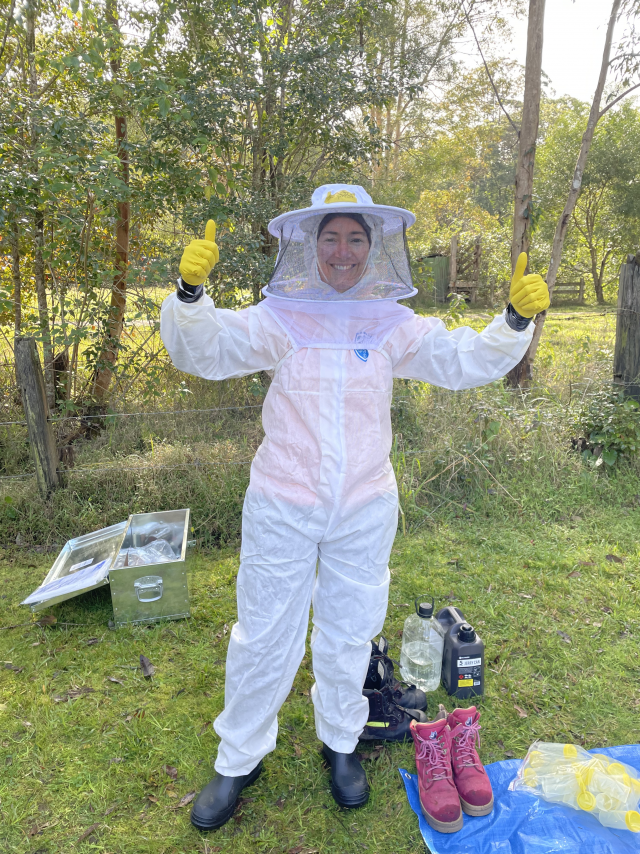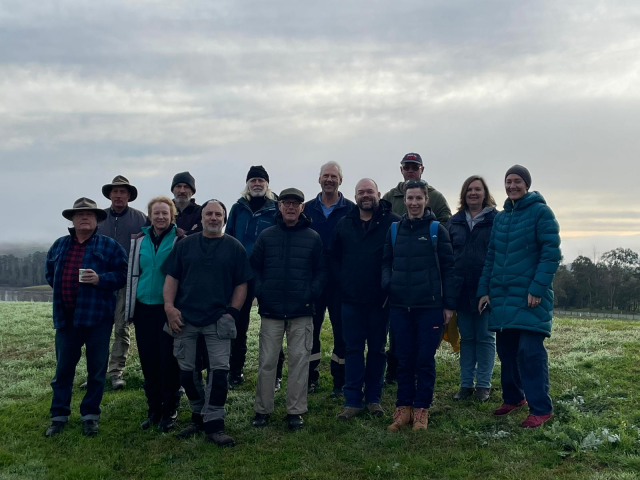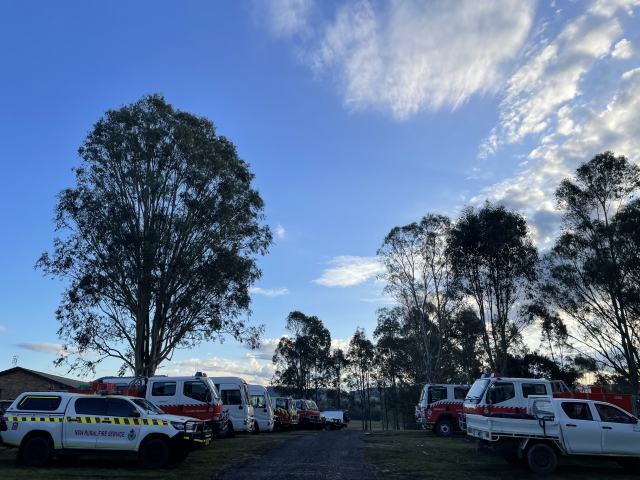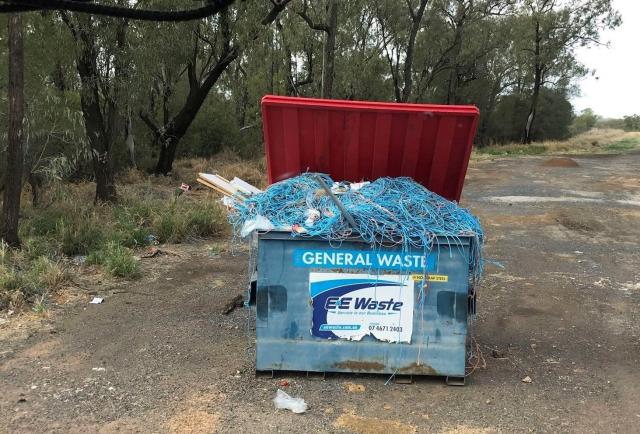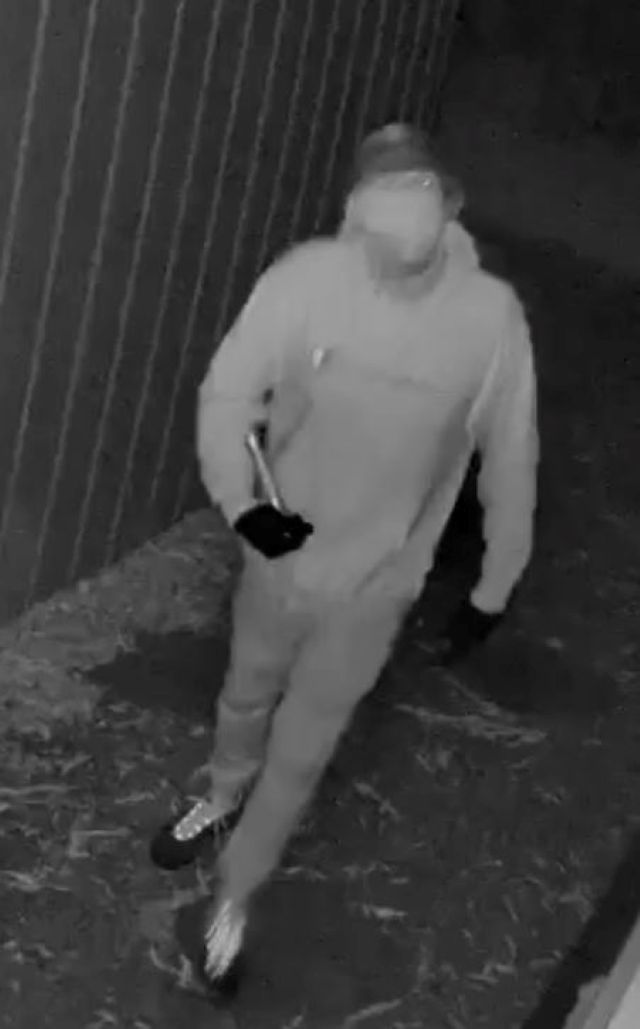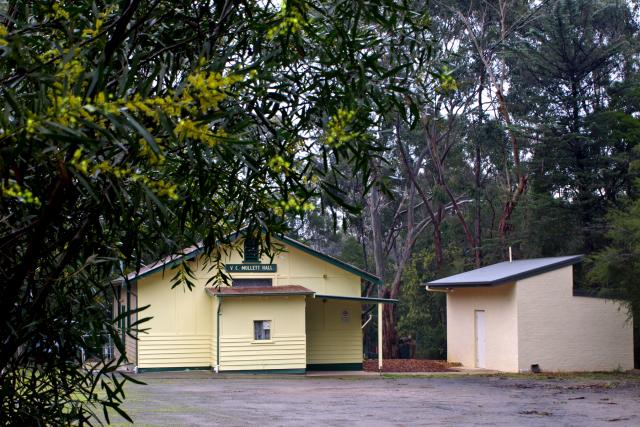A warning has been issued for Victorian Beekeepers about a fast spreading and destructive parasite, not only with the potential to change beekeeping habits but the growth of fresh produce.
Bob’s Beekeeping Supplies director Bronwyn Woods said the Varroa Mite was first discovered in Australia on the New South Wales coast on 22 June.
“We’ve had a few incursions that we’ve been able to stop in the past but this means our biggest incursion and it started in Newcastle,” she said.
Varroa Mites lay one male and between two to 16 female eggs in each cell, meaning numbers can spread and escalate quickly.
The Watsons Creek beekeeper recently volunteered to participate in the Varroa Mite containment efforts in Newcastle, coordinated by the Department of Primary Industries and the Rural Fire Service.
“We would go out to addresses during the daytime and we would do surveillance checks and once we’d finished at one address, we would go to the next address,” Ms Woods said.
“The surveillance checks were really based on where other mites had been found and so they were trying to map how far it may have spread.”
Covered head to toe in protective gear, including suits, gloves and veils, Ms Woods said everything had to be sprayed down with alcohol to enter and leave a site.
Having helped during the recovery of the Black Saturday Bushfires, Ms Woods said the response felt very similar and “it was basically all hands on deck, there was the same level of management and layers of complexities but without the flames.”
Varroa Mite is a small reddish brown external parasite of the honey bee, located in most of the major beekeeping producers in the world, that can kill any hive if left untreated.
“It’s massively concerning. It’s devastating,” Ms Woods said.
“In Australia every third bite we have in our diets can be attributed to the honeybee. So, as soon as we have something that impacts our honeybees, it impacts our whole agricultural system.”
Already an incursion of the mite has been located at a blueberry farm in New South Wales, causing widespread concern for surrounding growers of macadamias and raspberries who can no longer have beehives on their farms.
“In the Sunraysia area in Victoria, we’re looking at massive crop impacts on all our stone fruits. And the almond industry will not have enough hives to satisfy the requirements to create almond crops this year.
“They’re 10s of 1000s of beehives short in Victoria, to carry out the scale of the pollination that they need each year and so it impacts beekeepers but it also impacts our agricultural industry.
“It also flows onto impacting us day to day, because that flow on will be huge. There will be huge increases in our fruit and veggies that we buy from the shop, are just not going to be there.”
Alongside the lack of produce, Ms Woods said already the mental health of many beekeepers and farmers has been impacted, particularly in New South Wales where they have experienced fires and floods within the last two years on top of a pandemic.
Ms Woods said one advantage of never having much issue with the Varroa Mite in the past means Australia can look at how other countries have managed outbreaks and incursions.
But one of the only ways to control the pest is by using chemicals within the hive, something Ms Woods said here in Australia beekeepers have never had to do, priding themselves on the more natural methods for beekeeping.
“This one is a management scenario. So once we have it as a country, we will manage it probably really similarly around the country, even if our areas don’t have it.
“It’s more thinking about the life cycle of the pest. So there will be times where it has an opportunity to breed quickly and other times that are slower and then the way we manage our brood in our beehive will be impacted.
“The impact will be potentially less bees at some time of the year when we want to be out foraging and the repercussion of that will be a lower ability for our hives to collect nectar and therefore, as beekeepers, a lower ability to have a higher yield.”
As part of a bee club with fellow beekeepers from the Yarra Ranges, Ms Woods said most people are feeling apprehensive about Varroa Mite.
“People are really worried about the ramifications of having to go from using no chemicals at the moment…to having to learn a whole new way to manage bee hives because of one particular mite.
“It can be quite overwhelming. So apprehensive and overwhelming would probably be the right words.”
Beekeepers or farmers looking for advice or who are looking for information on the Varroa Mite can contact the Exotic Plant Pest Hotline on 1800 084 881.

